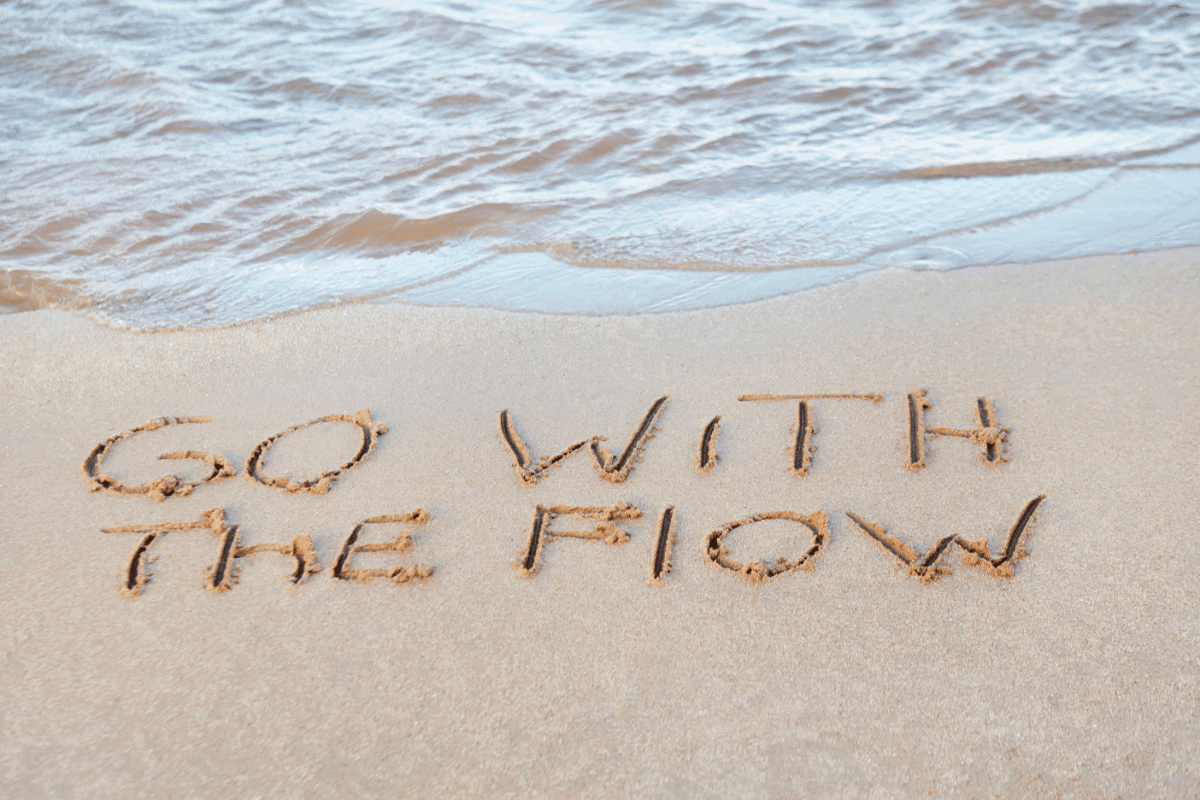Flow: The Psychology of Optimal Experience – Mihaly Csikszentmihalyi
Imagine a river flowing effortlessly, finding its way through the landscape, each turn and curve bringing a sense of purpose and harmony. Just like the river, the concept of flow in psychology represents a state of being fully immersed and focused, where time seems to slip away, and everything falls into place.
As you explore the principles of flow and how it applies to various aspects of life, you’ll uncover the key to unlocking your ultimate potential and finding fulfillment in everything you do.
Key Takeaways
- Flow is a state of being fully immersed and focused, characterized by feeling energized and enjoying the process.
- Achieving flow requires a balance between skill and challenge, with too much challenge leading to anxiety and too little challenge resulting in boredom.
- Clear goals, immediate feedback, and balanced skill and challenge are key triggers for experiencing flow.
- Flow has various benefits in daily life, including deeper connections in relationships, fostering creativity and innovation, enhancing work productivity, and promoting overall well-being.
Understanding the Concept of Flow
To truly comprehend the concept of flow, it’s essential to delve into the intricate interplay between skill and challenge in the pursuit of optimal experience.
The flow experience is characterized by a mental state where individuals are fully immersed in an activity, feeling energized, focused, and enjoying the process.
Achieving this state requires a balance between skill and challenge. When the challenge surpasses our skill level, we may feel anxious; conversely, if the challenge is too low, we may experience boredom.
Understanding this delicate equilibrium is crucial in cultivating the flow experience.
Mental state plays a pivotal role in the flow experience. Csikszentmihalyi describes the state as one of complete absorption in an activity, where individuals experience a sense of control and lose their self-awareness.
This mental state not only enhances performance but also brings about a deep sense of satisfaction and fulfillment.
Conditions for Achieving Flow
Achieving the flow state requires particular conditions that align with your individual skill level and the challenges presented by the activity. When these conditions are met, you’re more likely to experience the state of flow. Here are the key conditions for achieving flow:
- Flow Triggers
- Clear Goals: Having clear and achievable goals provides direction and purpose, helping you stay focused and motivated.
- Immediate Feedback: Regular feedback on your performance allows you to make real-time adjustments, increasing your sense of control and engagement.
- Balanced Skill and Challenge: Engaging in activities that match your skill level with the level of challenge involved promotes a sense of mastery and deep concentration.
- Flow Barriers
- Distractions: External interruptions or internal distractions can hinder your ability to maintain focus and immersion in the task at hand.
- Lack of Clear Feedback: Without clear feedback, it’s difficult to gauge your progress, making it challenging to stay engaged.
- Overwhelming Challenges: Tasks that are too difficult can lead to anxiety, while tasks that are too easy can result in boredom, both hindering the flow state.
Benefits of Flow in Daily Life
Incorporating flow into your daily life can enhance your overall well-being and productivity. When you experience flow in relationships, you’re fully present and engaged, leading to deeper connections and more meaningful interactions. This heightened state of focus and enjoyment can strengthen your bonds with others, fostering empathy, understanding, and mutual satisfaction. By immersing yourself in the present moment during conversations or activities with loved ones, you can cultivate a sense of closeness and fulfillment.
Similarly, integrating flow into your creative pursuits can unlock your full potential for innovation and self-expression. When you’re in a state of flow, your creativity flourishes, enabling you to generate new ideas, solve problems, and produce work that resonates with authenticity and originality. Whether you’re writing, painting, or engaging in any form of artistic expression, the experience of flow can elevate the quality and impact of your creative endeavors.
Cultivating Flow in Work and Play
As you navigate the spheres of work and play, harnessing the principles of flow can magnify your effectiveness and enjoyment in these domains, leading to heightened fulfillment and productivity.
Cultivating flow in work and leisure activities involves understanding how to optimize your experiences to achieve a state of optimal performance and enjoyment.
Cultivating Flow in Work and Play
- Work Productivity: Identify tasks that align with your skills and challenge you just enough to keep you fully engaged. Set clear goals, receive immediate feedback, and eliminate distractions to enhance focus and productivity.
- Leisure Activities: Engage in hobbies or leisure activities that match your skill level, provide clear objectives, and offer a sense of control. Choose activities that bring a sense of enjoyment and allow you to fully immerse yourself in the experience.
- Balancing Work and Play: Strive to maintain a balance between challenging work tasks and enjoyable leisure activities. Both should provide a sense of accomplishment and enjoyment, contributing to an overall sense of fulfillment and well-being.
Flow and Overall Well-being
Maximizing your state of flow can significantly impact your overall well-being, influencing various aspects of your life and contributing to a sense of fulfillment and satisfaction. The connection between flow and happiness is robust, as engaging in activities that promote flow often leads to positive emotions and a heightened sense of well-being. Furthermore, the state of flow has been closely linked to mental health, with research indicating that experiencing flow can decrease anxiety and depression, and enhance overall psychological well-being.
To better understand the impact of flow on overall well-being, consider the following table:
| Aspects of Well-being | Influence of Flow |
|---|---|
| Happiness | Promotes positive emotions and a sense of satisfaction. |
| Mental Health | Reduces anxiety and depression, enhancing psychological well-being. |
| Fulfillment | Contributes to a sense of purpose and accomplishment. |
As you can see, the relationship between flow and overall well-being is multifaceted, encompassing elements of happiness, mental health, and fulfillment. By actively seeking out opportunities to experience flow in your daily activities, you can effectively enhance your overall well-being and lead a more fulfilling life.
Conclusion
In conclusion, flow is an essential element for achieving optimal experience in daily life. By understanding the conditions for achieving flow and cultivating it in work and play, you can enhance your overall well-being.
Embracing the concept of flow can lead to a more fulfilling and satisfying life, where you’re fully engaged and in the rhythm of your activities, creating a harmonious balance between challenge and skill.
Bring flow into your life and watch it flourish.







